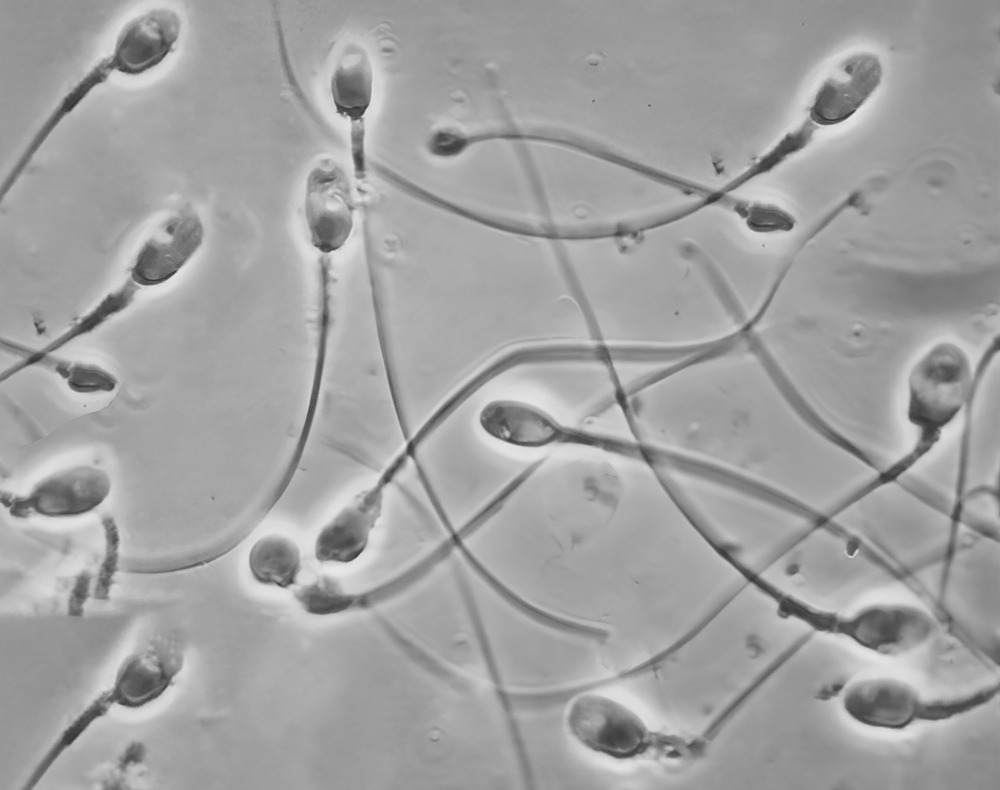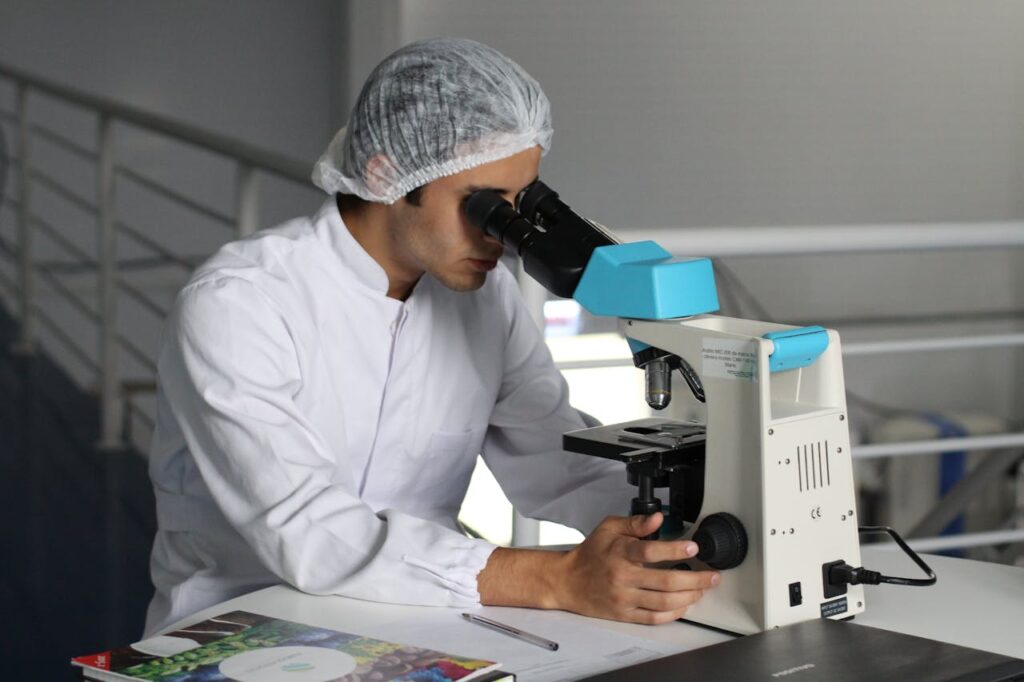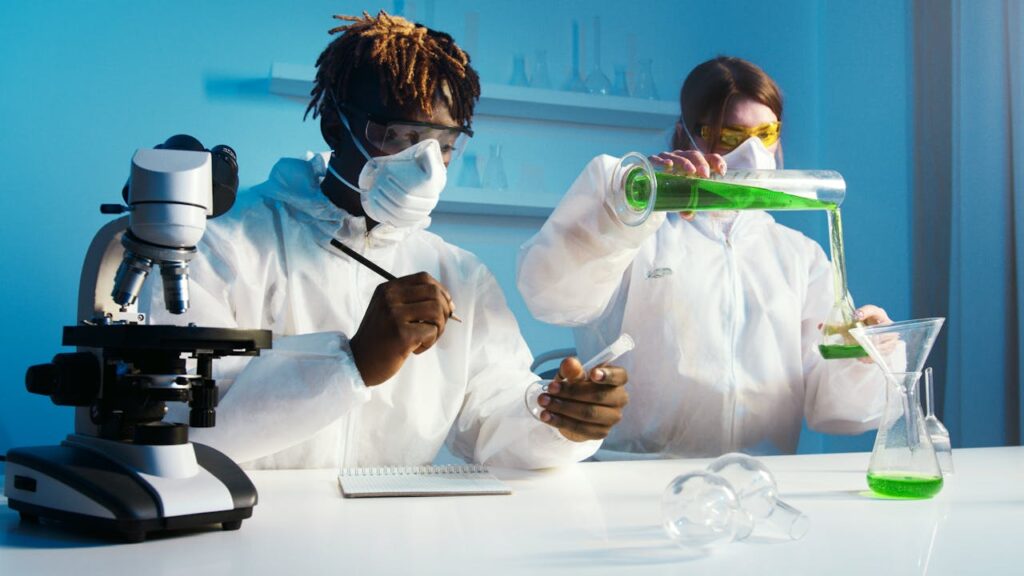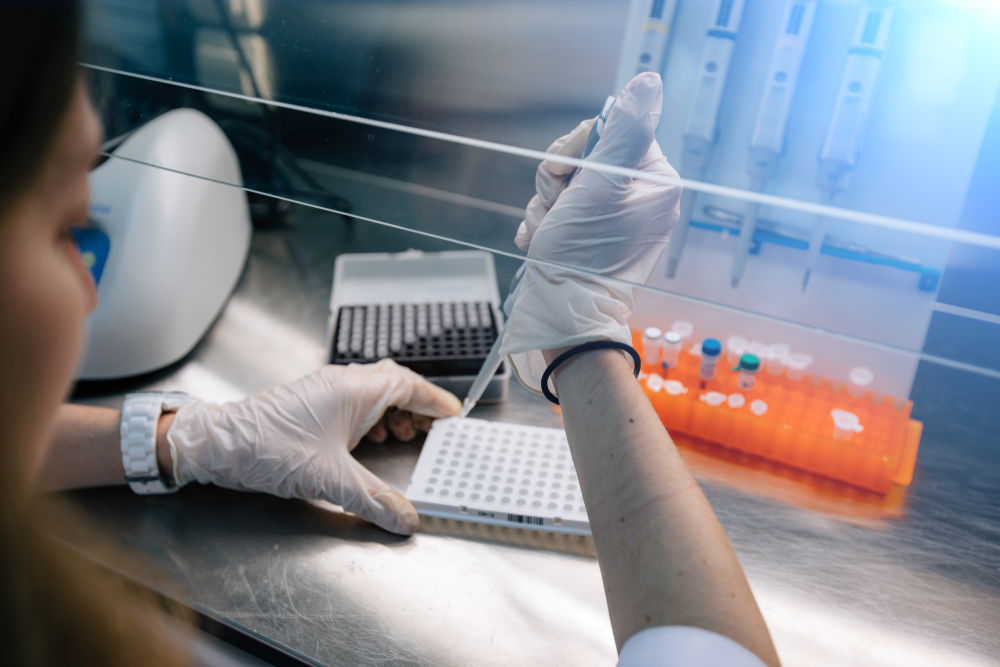Scientists Found COVID Can Alter Sperm and Possibly the Future of Humanity

When we think about the legacy of COVID-19, most of us picture the masks, the lockdowns, and the loss. We think about the seven million lives gone, the isolation that weighed heavy on our hearts, and the mental health struggles that quietly reshaped the world. But what if the true legacy of the pandemic is not only in our memories or our lungs, but in our very cells? What if what we lived through changed not only us but those who have yet to be born?
That question is not poetic speculation. It is what science is beginning to uncover.

The Unseen Echoes of Infection
Researchers at the Florey Institute of Neuroscience and Mental Health in Melbourne, Australia, recently found something astonishing. In a study published in Nature Communications, scientists infected male mice with the virus that causes COVID-19 and then bred them with healthy females under controlled conditions. The team tracked outcomes not in the parents but in the next generation, asking a simple question with far reaching meaning. Could a father’s infection leave a biological memory that shapes his offspring’s emotional life?
“We found that the resulting offspring showed more anxious behaviours compared to offspring from uninfected fathers,” said Elizabeth Kleeman, the study’s first author. The effect was not limited to a subset of litters. According to the reporting, all offspring from infected fathers exhibited measurable behavioural change, with females showing the clearest signal in brain regions central to emotion and stress processing.

The mechanism explored sits in the realm of epigenetics, where information rides alongside DNA rather than altering the genetic code itself. The researchers identified changes in RNA molecules carried by the fathers’ sperm. These RNA species influence how genes are expressed after conception, acting as regulatory cues during early development. The study noted that several of the altered RNAs are involved in the regulation of genes that are important for brain development. In the offspring, investigators observed significant changes in the activity of specific genes within the hippocampus, a hub for memory and emotional regulation, particularly in females.
This “may contribute to the increased anxiety we observed in offspring, via epigenetic inheritance and altered brain development,” explained Carolina Gubert, co-senior author of the study. The authors describe their work as the first of its kind to demonstrate long term impacts of paternal COVID-19 infection on behaviour and brain development across generations, positioning sperm borne RNA signals as plausible messengers of experience from parent to child.
How a Virus Reaches Beyond the Body
At The Florey’s Epigenetics and Neural Plasticity Research Group, lead researcher Professor Anthony Hannan described how external experiences, like stress, diet, or infection, can alter sperm through epigenetic markers such as small noncoding RNA molecules. These act like switches that turn genes on or off during early development.
“We already knew that when male mice were exposed to specific environmental and lifestyle factors, like poor diet before mating, it could change brain development and behavior in offspring,” Hannan told New Atlas. “This is because the father’s experiences can alter the information carried in sperm, including specific RNA molecules, which transmit instructions for offspring development.”

In this study, infection caused inflammation in the testes, reduced sperm count and motility, and damaged the structures responsible for sperm formation. Immune cells even invaded the testes, an organ typically shielded from immune activity. These biological changes suggest that COVID-19 does not just impact the respiratory system, it may quietly affect the very seed of life.
When the infected males mated, their offspring were raised in virus-free conditions. The differences observed, the anxiety and the altered brain gene expression, had no other source but the father’s infection. It is a haunting reminder that the things we endure might ripple through generations in ways we cannot see.
What Science Is Still Discovering
Let us be clear, this evidence comes from a carefully controlled mouse model, not from human families. The male mice were engineered to carry the human ACE2 receptor so the virus could enter cells in a way that resembles infection in people, and they were exposed to relatively high viral doses compared with most natural infections. Animal immune systems differ from ours, and those differences matter when scientists try to translate findings to clinical reality. As New Atlas explains, the authors themselves caution that there is no direct proof yet that similar effects occur in human children and that more work is needed to test whether changes in sperm RNA after COVID-19 appear in men and whether any such signals relate to child development over time .
A responsible next step would be longitudinal research that follows men before and after infection and tracks sperm profiles, mental health, and stress biology with careful attention to factors such as age, illness severity, vaccination status, and reinfection. Parallel studies could examine whether any observed sperm RNA signals fade as men recover, which would speak to reversibility. Clinical work would also need to account for the shared environment of families, since parenting stress, socioeconomic factors, and collective trauma from the pandemic could influence a child’s emotional development independent of any biological transmission. These design choices would help separate correlation from causation and protect against overinterpretation of early signals reported in laboratory settings.

The authors emphasize caution while underscoring the stakes for public health if the effect proves relevant in humans. “While more research is needed, particularly in the sperm and offspring of humans infected with the SARS-CoV-2 virus, these findings suggest that the COVID-19 pandemic could have long-lasting effects on future generations,” Hannan said. “If our findings translate to humans, this could impact millions of children worldwide, and their families, with major implications for public health,” Hannan said.
Ethically, clear communication is essential so the public does not mistake an animal study for a clinical verdict. The practical takeaway at this stage is not fear but curiosity and care. The pandemic has already taught us how closely health is tied to context. The next wave of research will test whether the signals seen in the lab map onto human life and, if they do, whether they can be softened by recovery, support, and prevention.
The Emotional and Generational Aftermath
Even beyond biology, COVID has already left deep marks on the human psyche. The World Health Organization estimates more than seven million deaths globally, but the mental toll runs deeper still. Studies show that younger people, isolated during formative years, experienced record levels of anxiety, depression, and disconnection. A 2023 review in Nature Human Behaviour found that children around the world still have not caught up from the learning gaps caused by the pandemic.

We often think of healing as something individual, recovering from illness, from loss, from loneliness. But what if healing is also collective? What if the choices we make today, how we treat our bodies, our minds, our planet, are all writing instructions for the next generation?
From Survival to Conscious Living
The study from The Florey Institute does not just raise scientific questions. It invites a spiritual one. What are we passing on beyond our genes?
Maybe the lesson of this pandemic is not only about washing hands or wearing masks. Maybe it is about awakening, recognizing that what we do, what we feel, even what we suppress, does not end with us. It ripples outward. Into our relationships. Into our communities. Into our future children.
We cannot control every virus or every trauma. But we can choose how we respond. We can care for our mental health as seriously as we do our physical health. We can build support systems that nurture connection and empathy. We can talk openly about pain before it buries itself in silence.
As Hannan said, the research highlights the importance of understanding the impacts of this virus “not only on those directly infected, but also on their children who may be affected by their parent’s experience with COVID-19.”
The Call to Heal Forward
If science is showing us that our pain, our stress, even our illnesses can echo in the lives of those who come after us, then every act of self-care becomes sacred. Every mindful breath, every therapy session, every step toward healing is not just for us, it is for the children who will inherit this world.
Maybe the greatest gift we can offer the next generation is not wealth or technology. Maybe it is wellness, the emotional, physical, and spiritual kind. Because when we heal, we change the instructions our lives are writing into the future.

COVID may have changed us in ways we do not fully understand. But that does not mean we are powerless. It means we are responsible. And that is a beautiful thing.
The real question now is, what legacy do we want to leave in our cells, our stories, and our children’s hearts?
Featured Image from Shutterstock
Loading...

